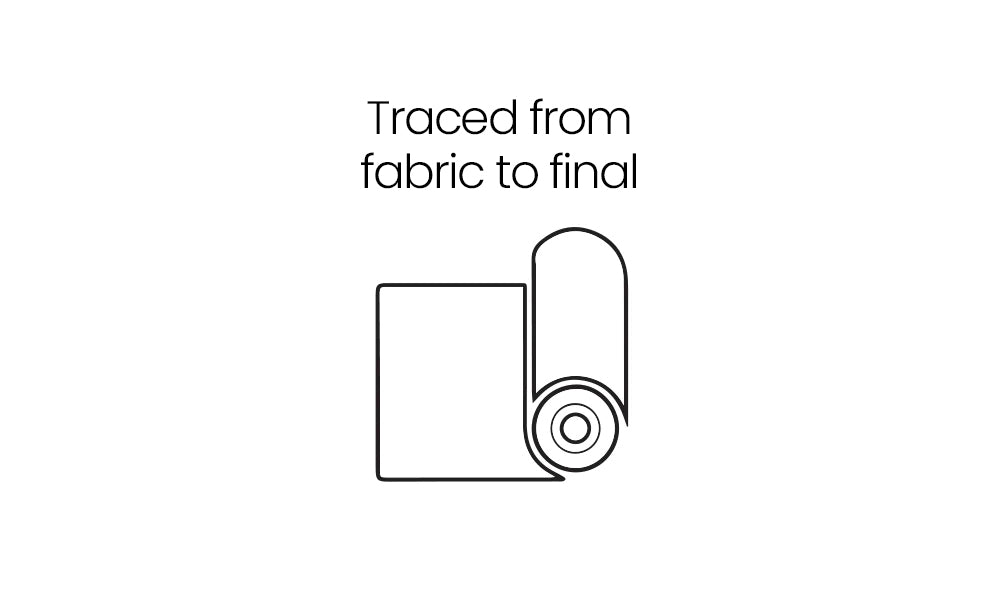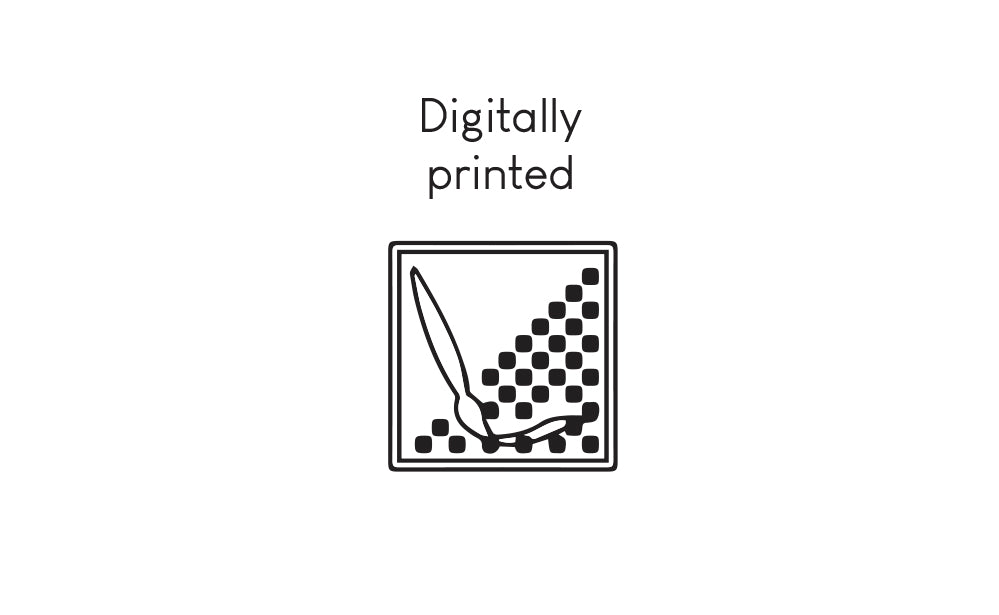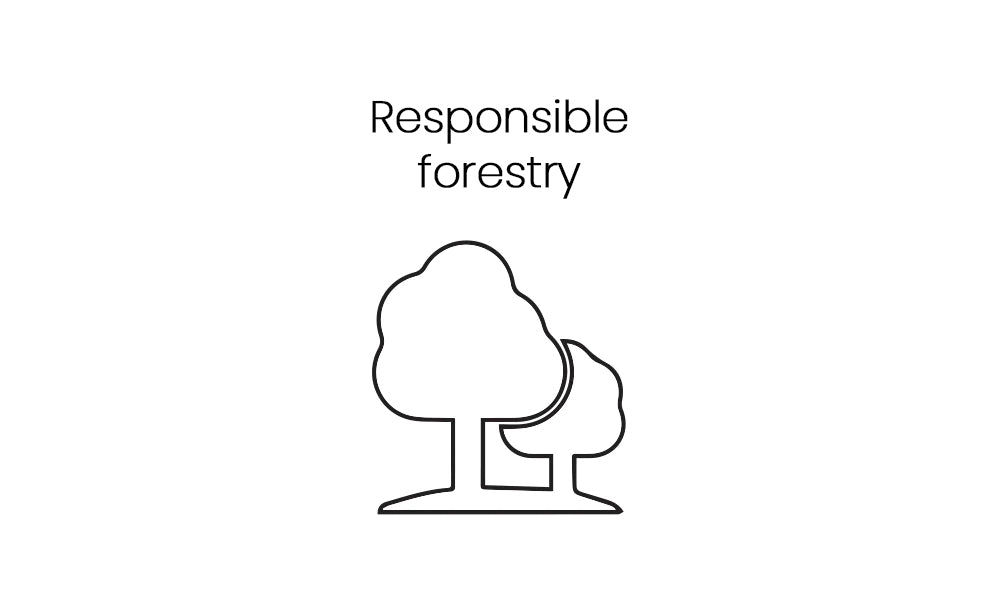Our unique commitment as a brand is traceable throughout the entire supply chain, not only when looking at the final garment production. We continuously analyse and regularly review our processes. As and when things change socially, environmentally or politically in the areas where we manufacture or buy raw materials, we react flexibly to change the way we are working and ensure we are making the best possible choice for people and planet. At MOP, we show you exactly what we’ve done with each garment via our sustainable attribute filter online. This gives you the power to make informed choices about the clothes you’re purchasing.
There are 12 attributes for you to filter each product by and on the garments product page, the corresponding sustainable attributes are clearly listed. This is a revolutionary way of shopping, not simply focused on the type of product but also the story of its creation.
Want a little more info? Learn more below...
Transparency

“Our unique commitment as a brand is traceable throughout the entire supply chain, not only when looking at the final garment production.”
Naturally beautiful. We try to use materials in their raw state to avoid adding unnecessary chemicals and dyes to the process. This also leads to an overall cleaner product. Win for you, win for the planet.



Whilst fashion is sadly having a detrimental impact on our natural resources, it also has the ability to become one of the most circular industries. As a design focussed and creative brand, we hold the power to reimagine anything into something new. Which is why we don’t get rid of our leftover fabrics or deadstock; we bring them back into the spotlight via new designs.
Synthetic fibres need industrial circulation to manage recycling and re-recycling and when they are washed they shed tiny particles of plastic into the water system that end up in our oceans. Around 700,000 microfibres are released in an average wash cycle.* They end up polluting our water, causing damage to the environment and contaminating fish and other marine life. Natural fibres are a renewable resource that can be easily recycled once they reach the end of their life. They decompose in the earth, returning to nature much more easily than synthetic man-made fibres. *Napper & Thompson, 2016





Mulesing is a cruel and painful way of removing a sheep’s skin infested with flies, without any pain relief or anaesthetic. We believe there are more humane ways of preventing this, so we only buy wool from sheep that are ‘non-mulesed’.
We are always working to make sure from fibre to final our garments have travelled the minimum of miles, ensuring we minimise our carbon footprint as a brand. We work to get to the bottom of origins of every scrap of material in every garment. Filter by this to ensure your garment has been produced from field to final within 1 country.







Where you see 'Traced From Fabric To Final' it means we know where the finished fabric has come from to where the garment has been cut and stitched. We have always had a great relationship with all of our socially responsible factories and visit them on a regular basis to monitor the process.
Our ‘Fibre to Final’ filter means we’ve traced this garment's full supply chain, from concept to creation, ensuring we make its journey as short as possible. We start from the origin of the raw material and track the journey throughout its creation, all the way to the finished product. Whilst we know all of our factories and suppliers, the supply chain of a fabric is very complex and can be the most damaging to the environment. We’re determined to be able to trace our full supply chain. It is important for us to know where everything has come from, to be able to check the full process, and to monitor our carbon footprint.









When we digitally print our fabrics, we use the exact amount of ink needed to create our designs. Traditional printing methods require a lot more water and ink than digital printing.
Viscose comes from trees. A growing popularity for viscose fibres has seen demand double in the last decade, leading to the destruction of ancient and endangered forests and the animal species that live within them. Every year over 150 million trees are cut down to make fabric; but viscose can be made using sustainable forestry methods. Tencel is a sustainable brand of viscose. The natural fibre originates from the renewable raw material wood and is created by photosynthesis. It is brought to life in a closed loop production process; the water used is recycled and fewer chemicals are required during the manufacture. It goes without saying that the trees used for this product are managed under strict regulations to make sure that our planet’s natural resources are replenished.











We aim to only buy certified organic cotton. It is important to us that the strict social and environmental criteria are monitored throughout the process. The majority of cotton farmers live and work in the developing world where there are no regulations that ensure these farmers are paid a decent wage. 270,000 cotton pickers have committed suicide in the last 25 years*– that’s something we definitely do not want to be part of. We use GOTS for the bulk of our organic cotton as we know that all the steps along the way are checked. Conventional cotton production is also incredibly harmful to the environment and the cotton growers for many reasons; from its huge water consumption to its use of highly dangerous pesticides. Organic cotton is pesticide free and requires less water, so better all round. *https://www.theguardian.com/global-development/gallery/2014/may/05/india-cotton-suicides-farmer-deaths-gm-seeds
Nothing is more sustainable than repurposing something that already exists on the planet – especially when it’s made from natural fibres. We love using recycled fabrics as even though there is some processing involved the raw materials are already on the planet and therefore don't take any more natural resources from the planet. Recycled natural fibre fabrics are the holy grail of fabrics in our opinion and becoming more available.













Botanic fibres derive from the sustainably sourced, renewable raw material, wood. They are then produced in an environmentally responsible process, reusing up to 99% of the water & solvents needed for the process. Our botanic fibres are certified TENCEL™ lyocell from Lenzing group, who design their biobased fibres to be compostable & biodegradable at the end of the garments life cycle.
By weaving circularity into every stage of a MoP garment's life, our pieces will find their place in your forever wardrobe for years to come. That’s why we’ve partnered with SOJO in the UK, to bring you high quality alterations across our core and seasonal collections. As a champion of individuality and authenticity, we recognise that every body is different – and we’re continually learning and adapting to make sure our garments are the best fit possible for everyone. Find out more.






